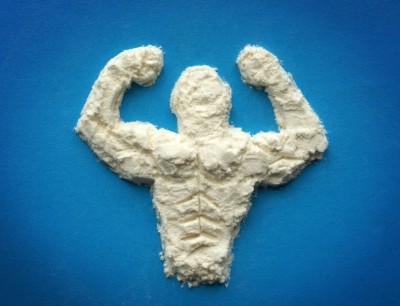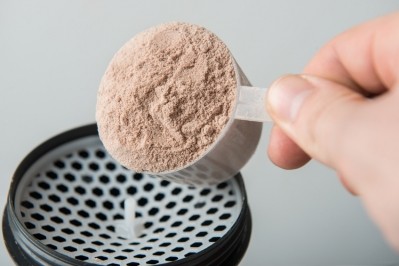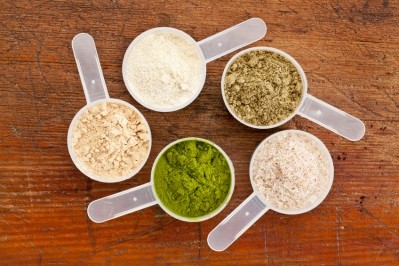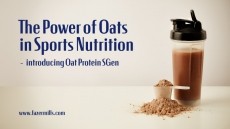Short-term protein supplements have little gain for untrained athletes
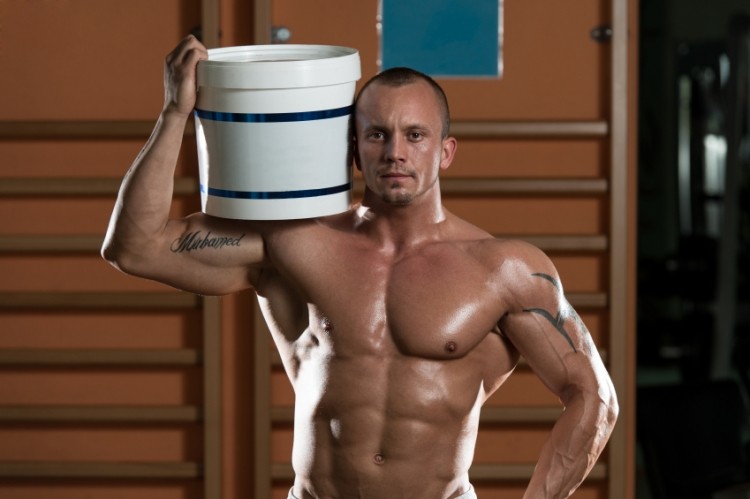
Neither leucine, nor leucine-equivalent amounts of whey or soy protein augmented strength or whole-body muscle mass (WBMM) in a group of college-aged athletes, found researchers from Auburn University, Alabama.
During a 12-week program of resistance exercise training (RET), athletes received twice-daily protein supplements totalling of 6 grams/ day (g/d) of leucine itself (or the equivalent amount derived from soy or whey in concentrate or hydrolysate forms) or placebo.
“Our study demonstrates that neither leucine nor protein supplementation (standardized to leucine) in previously untrained, college-aged males provide added benefit in increasing whole-body skeletal muscle mass or whole-body strength,” wrote lead researcher Michael Roberts.
“We do report, however, that whey protein supplementation significantly increases skeletal muscle satellite cell number with resistance training; this being a finding that requires further elucidation,” he noted.
Training not supplementation effect
The study design was a double-blinded, randomised controlled trial (RCT).
As an explanation for the lack of effect on strength and WBMM, the scientists suggested that protein supplementation may “only benefit those that undergo more prolonged, strenuous resistance training.”
The study findings are consistent with an earlier meta-analysis, which found that protein supplementation had little muscle hypertrophic effect in athletes who had undertaken little or no previous RET.
Thus, the similar increases in strength and WBMM in the protein and placebo groups during the 12-week RET program were purely a training effect rather than a supplementation effect, concluded the study team.
Satellite cell numbers
The researchers suggested that the increase in skeletal muscle satellite cell numbers induced by whey protein supplementation “may promote more favourable training adaptations over more prolonged periods.”
Other studies have also reported increases in satellite cell numbers in response to protein supplementation and strength training programmes of similar duration. Previous research has also suggested that increases in satellite cell numbers are a necessary precursor to increasing skeletal muscle mass.
However, more research is needed to clarify potential mechanisms and benefits of increased satellite cell numbers.
“More data are needed to examine how increasing dietary protein intake mechanistically affects satellite cell turnover and if protein-induced increases in satellite cell number provide any added benefit to resistance-trained individuals (i.e., reducing recovery time between training bouts due to satellite cell-mediated recovery mechanisms),” wrote the researchers.
The exact mechanisms behind the hypertrophic effects of amino acids, either in isolation or within whole protein sources, are yet to be fully elucidated.
“There is a lot yet to be unveiled in science behind muscle adaptation, and at different levels of training and fitness. The science is still young, and what we are seeing now is a strong body of evidence emerging to suggest a number of new concepts that can bring a lot of exciting innovation in sports nutrition for the next few years,” explained Suzane Leser, sports nutrition expert and Head of Nutrition at Volac Human Nutrition.
“For example, that perhaps there are multiple mechanisms of muscle response beyond the leucine pathway. Likewise, that a complete protein source is much more than a source of one functional amino acid, as this study suggests, that the benefits of whey protein can be beyond leucine only,” she concluded.
Source: Nutrients
Volume 9, issue 9. Published online. DOI: 10.3390/nu9090972
“Effects of Whey, Soy or Leucine Supplementation with 12 Weeks of Resistance Training on Strength, Body Composition, and Skeletal Muscle and Adipose Tissue Histological Attributes in College-Aged Males”
Authors: C. Brooks Mobley, Michael D. Roberts et al

